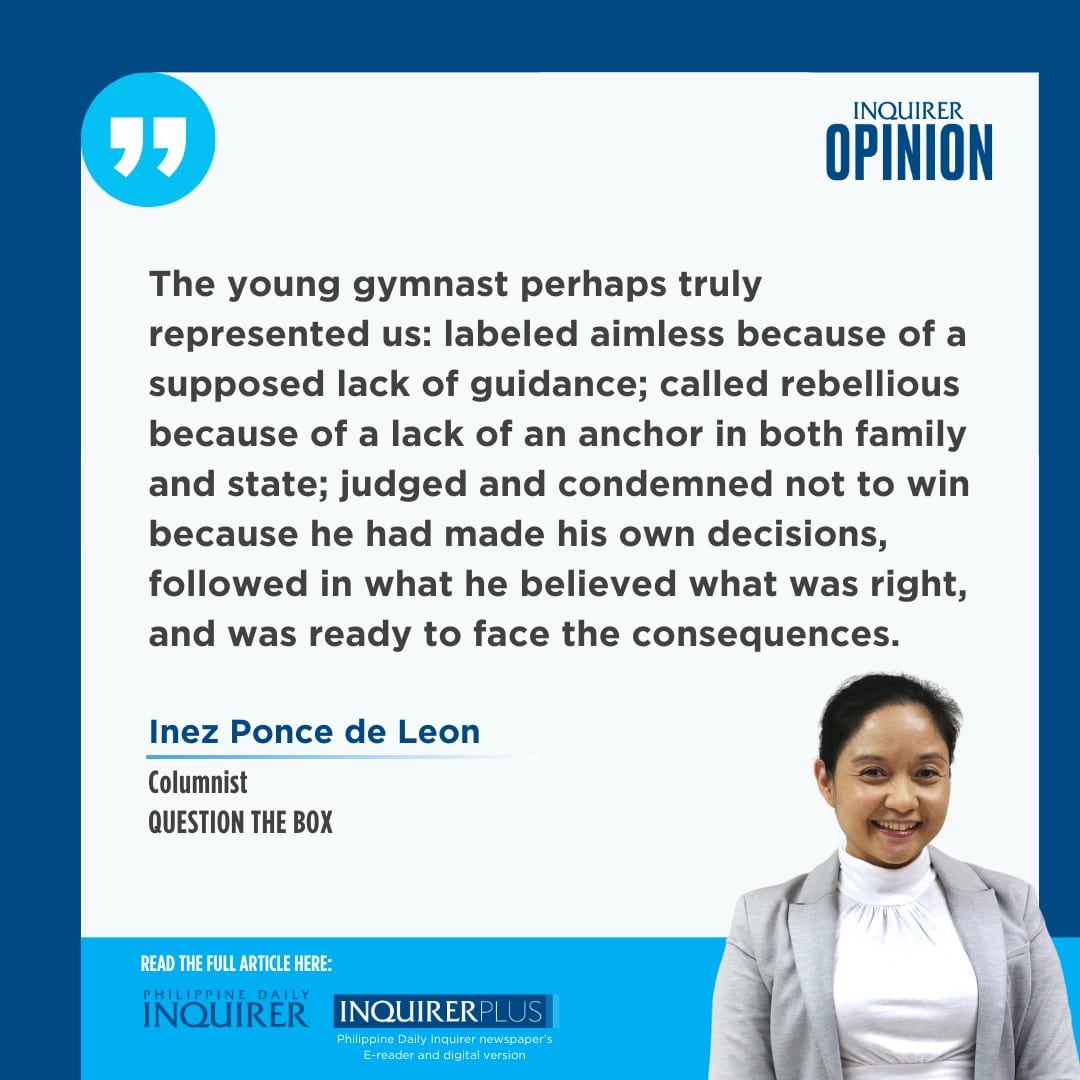Forever a golden sun and stars
Last weekend was one for the Filipino history books and quite a headline grabber that might have stopped the presses everywhere when the news came blaring in on two consecutive midnights: Carlos “Caloy” Yulo won two Olympic gold medals for two separate men’s artistic gymnastics events.
For two nights, we held our breaths as his name soared to the top of the standings, following a floor exercise that saw him land high-difficulty moves, and then a vault that made us gasp as he stumbled just a wee bit but kept his position above the rest of his competitors.
Article continues after this advertisementFor hours, social media feeds rang with congratulations, jokes about doubled incentives, promos that poked fun at Yulo’s rather gossip-rich behind-the-scenes affairs, virtually raised fists as people declared that the young man who had been belittled by the public, left his coach, and earned the very public ire of his mother—as the internet announced that Caloy Yulo had really, truly won.
It’s a triumph that I hope will be duplicated in the next few days, but the last two nights have already brought quite a high. There’s nothing like hearing the national anthem playing on an international stage. For a long while, I’d always thought it was because of the optics: a song playing the soundtrack to the Philippine flag hoisted higher than others, a march to herald the visibility of someone from an archipelago that’s always been called poor, small, invisible.
As I watched the video feed of the flag rising above the arena, and as I listened to the “Lupang Hinirang” march, I also realized that all that people ever hear of any anthem on the global stage is an instrumental. They cannot hear the lyrics unless they search them out, or unless the fan next to them knows the words; and even then, they wouldn’t understand the words unless they, too, spoke the language.
Article continues after this advertisementThere’s this part of the anthem that felt even more beautiful as the march kept playing. It’s the verse where we describe our flag: Ang kislap ng watawat mo’y tagumpay na nagniningning; Ang bituin at araw niya kailan pa ma’y ’di magdidilim.
It feels merely descriptive because it appears that the stars and sun simply shine, forever incandescent through the darkness, representing an unnamed triumph.
The English translation, however, has a more detailed description of what the stars and sun represent: The banner dear to all our hearts, its sun and stars alight; oh, never shall its shining fields be dimmed by tyrant’s might.
The sun and stars are no mere decorations. Like the heavenly bodies they represent, they produce and emit their light and keep the flag, and country, visible. The stars and the sun, too, are a reminder of the nature of that illumination: it was our fervor, our fire that made us rebel against conquerors, that fought those who tried to set us against each other.
We might have sought help and received assistance in obtaining our independence, but it was our ardor, our strength that we used to speak up against enslavement, imprisonment, tyranny.
Is it any coincidence that those same stars and sun glisten with the same gold of the medals that our athletes won and bore? Is it any coincidence that their color matches that which we wore as we marched fearlessly on Edsa and said, “Never again”?
The three stars and the sun still stand for the many parts of the Philippines that came together, to show their love and passion rising and burning.
But their burning is not some empty show of light. Beyond the gymnastics mat, away from the runway and the vault, we, too, have been burning against the many chains under which we have labored as a nation.
History being forgotten in favor of a comfortable “moving on” that has seen education and elections fall to pieces. Invaders who hurt our fishermen and destroy our seas. Invaders hidden in plain sight, brought here by greed and sustained by bribes. The many storms and floods that batter us and fill our streets and force us out of our homes. The earthquakes and volcanic eruptions that have torn our land apart. The tsunamis that could ensue. The storm surges that threaten to return our islands to the depths of the ocean.
A society that prizes conformity until it becomes blind to injustice.
And there the three stars and sun remain, golden and shining, upon a flag that rose higher than two others, to the tune of a national anthem whose lyrics only we know, only we truly understand in that moment of triumph.
As Caloy Yulo sang the national anthem through his tears on Sunday night, I realized why the two medals were more poignant. It was because the young gymnast perhaps truly represented us: labeled aimless because of a supposed lack of guidance; called rebellious because of a lack of an anchor in both family and state; judged and condemned not to win because he had made his own decisions, followed in what he believed what was right, and was ready to face the consequences.
For a moment, against the naysayers, he won.
And for a moment, against the tides, we, too, did.
—————-
iponcedeleon@ateneo.edu

















